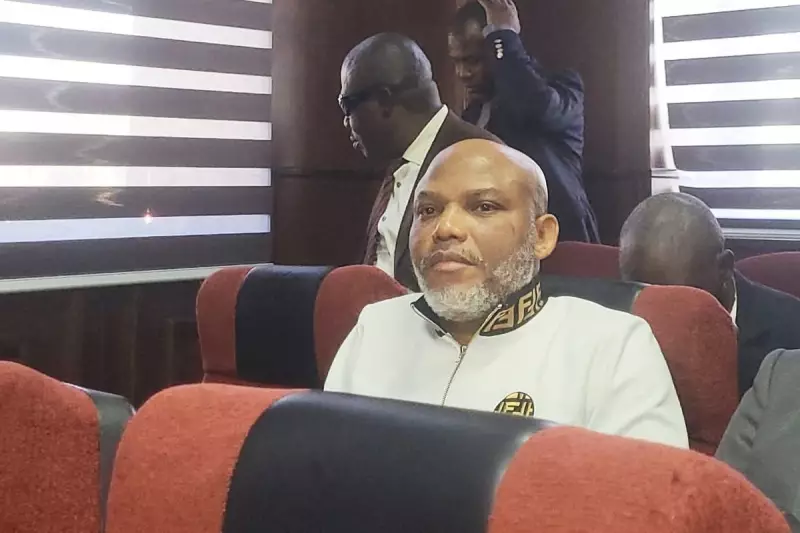
The Indigenous People of Biafra (IPOB), a prominent separatist movement in southeastern Nigeria, has declared its unwavering commitment to peaceful self-determination following the life imprisonment sentencing of its leader for terrorism charges.
Court Delivers Landmark Ruling
Nnamdi Kanu, the founder of IPOB, was convicted and sentenced on Thursday 20th November 2025 by a Nigerian court. Judge James Omotosho presided over the case, delivering a verdict that has sparked international attention and local controversy.
The charges against Kanu included multiple serious allegations: carrying out acts of terrorism, issuing and violently enforcing stay-at-home orders that paralysed the southeastern region every Monday, providing guidance on bomb-making targeting government facilities, and public incitement.
Separatist Group Defiant in Response
IPOB spokesperson Emma Powerful issued a strong statement on Friday 21st November 2025, condemning the sentence and maintaining the group's peaceful intentions. "We reaffirm our commitment to peaceful advocacy, international law and the pursuit of a United Nations-supervised referendum," Powerful declared.
The separatist organisation vehemently denied the terrorism allegations, claiming that no weapons or "attack plan" were ever found in Kanu's possession. They argued that the separatist leader had not committed any offences under either Nigerian or international law.
Legal and Political Context
Judge Omotosho made a significant distinction in his ruling, acknowledging that "the right to self-determination is a political right" but emphasising that "any self-determination not done according to the constitution of Nigeria is illegal."
Powerful countered that the violence occurring in Nigeria's southeast is "politically manufactured" and unrelated to Kanu, who has been in detention throughout much of the recent unrest.
This case forms part of a broader pattern of separatist prosecutions. Another Nigerian separatist leader, Simon Ekpa, was convicted in Finland in September on terrorism-related charges and sentenced to six years imprisonment. Ekpa, who holds Finnish citizenship, was found guilty of participating in terrorist group activities, public incitement to commit crimes for terrorist purposes, and aggravated tax fraud.
IPOB continues to advocate for the creation of an independent Biafran state in southeastern Nigeria, a movement that traces its origins to the original Republic of Biafra that existed briefly during the Nigerian Civil War from 1967 to 1970.





